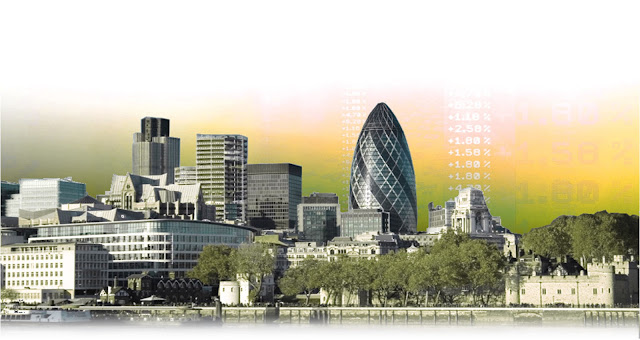The problem with the UK is that even good news comes with the Big Proviso....
ref :- "UK Wage Growth Accelerates, Signaling Squeeze Is Ending" , Bloomberg Markets
As we've said (on Monday, was it?), most of the financial world's attention is firmly fixed on how the US Federal Reserve will adjust their forecasts for growth and interest rates in their statement later today. Given that a 1/4 point hike in rates is already fully discounted, investors will be forensically examining the language used in the statement for clues about future monetary policy, and judging the tone struck by new Chairman Jay Powell for any hawkish (or indeed doveish) bias. And frankly, there's not too much more to be said about that .... not till tomorrow, at least.
We also said on Monday that traders in UK assets would have other things to keep their eye on too -- not least because the Bank of England have got their own decision on interest rates to make tomorrow .... well, theoretically at least. If the Fed is guaranteed to raise rates today, to all intents and purposes the BoE is guaranteed to keep things on hold tomorrow. The question is, for how long ?
Yesterday, the UK's February inflation data was released showing a larger than expected fall in the Consumer Price Index to 2.7% (from 3.0%). The bigger fall might suggest that the pressure on the BoE to raise rates in the near future is easing slightly. But there's a "good" inflation / "bad" inflation thing going on here.
In this case, "bad" inflation is that caused by the dramatic, post-Brexit vote fall in the value of currency in a country that relies so heavily on imported goods, and it looks as though the worst of that effect is finally washing out of the system. "Good" inflation is that caused by wage growth that is normally the result of a growing economy. If the UK's recent performance may have been overshadowed by that of the Eurozone, to the surprise of many it has held up better than might have been expected. And at last wage growth, that precursor to inflation, is getting back to levels that demand the attention of those setting monetary policy.
This morning, the ONS announced that basic wage growth in the three months to January climbed to 2.6%, and the jobless rate fell to 4.3% -- the lowest since 1975. For most men and women in the street, this will be very welcome. With inflation rates outstripping wage growth (by as much as 2.0%), households have spent over a year watching their spending power contract. With the gap between the two now down to just 0.1%, it looks as though the squeeze on living standards is poised to come to an end.
One could of course argue that the rise in wages measured year-on-year merely reflects the comparative weakness of a year ago .... and to an extent that's true. But with uplifts in the minimum wage about to come into effect and an end to a cap on public-sector pay rises, there's every likelihood that wage pressure will continue to grow.
So what does that mean, market-wise ? The lack of spare capacity in the economy represented by rising wages increases the chances that the BoE will raise rates in May, which unsurprisingly has boosted sterling this morning. You could also make the case (looking further ahead) that any good news for the stumbling minority government is good news for the currency, given the fact that if an election was held tomorrow the polls tell us that the victors would be a Labour party espousing far-left economic policy. Whatever one's views on that, we can be sure that it would terrify markets.
Sterling has also been supported since Monday on the news that the UK and the EU have reached a deal on a transitional Brexit arrangement. That's obviously a comfort to UK businesses, but in its way it epitomises exactly what the problems are with trading sterling and sterling assets on any longer-term basis. The deal is significant and a welcome step, but there's still so much that can go wrong : N. Ireland ? Gibraltar ? What about Brexiteer factions of the UK's ruling Conservative party rebelling over what they see as several concessions too many (esp. politically sensitive fishing rights) ?
Still, in the meantime sterling has got a few friends out there. As with any trading decision, you hope for best but must be prepared for the worst. And if the worst for a Brexit-dominated sterling might be very uncomfortable indeed, the current attitude seems to be :
"Maybe .... but not necessarily ..... and certainly not right now,"



No comments